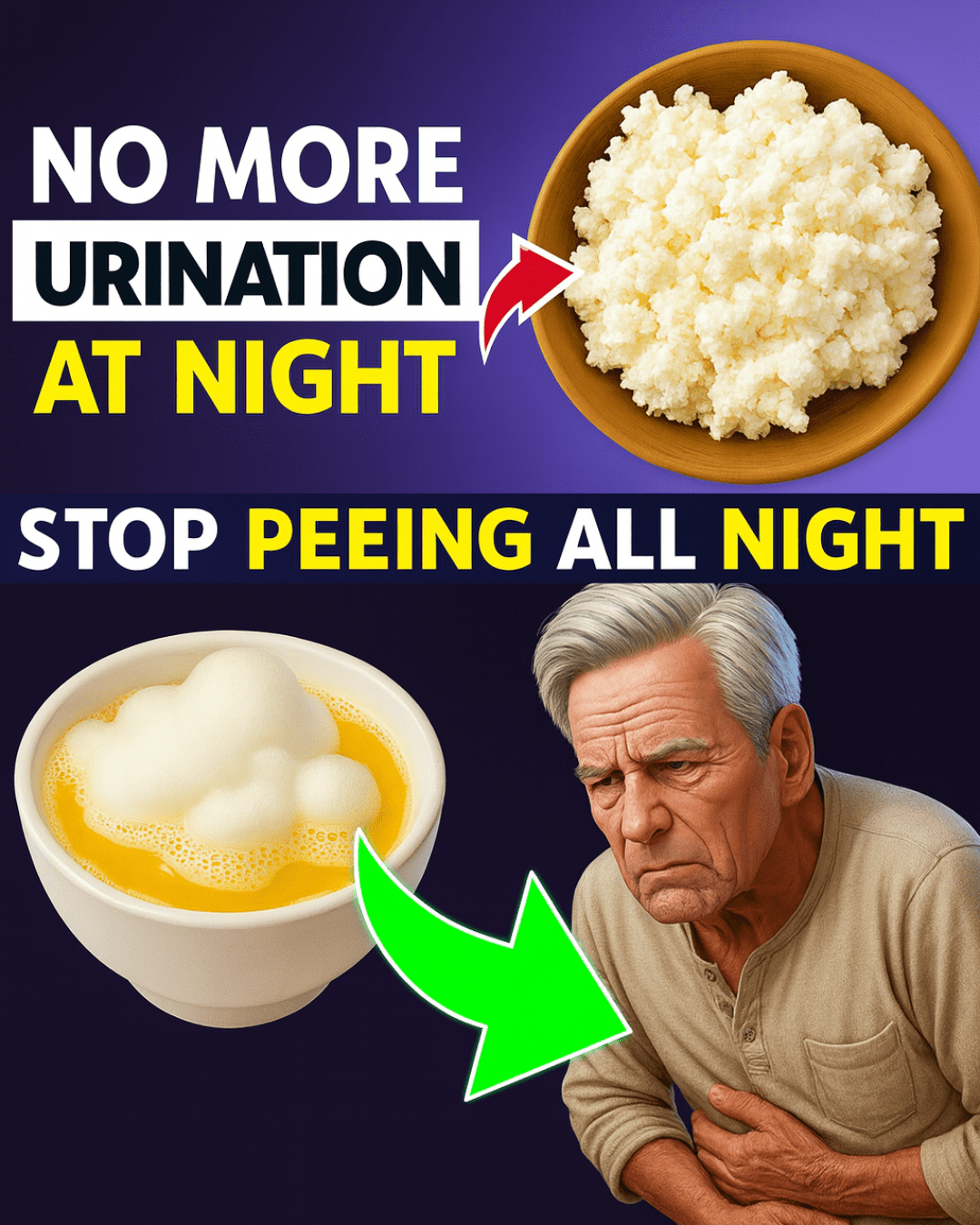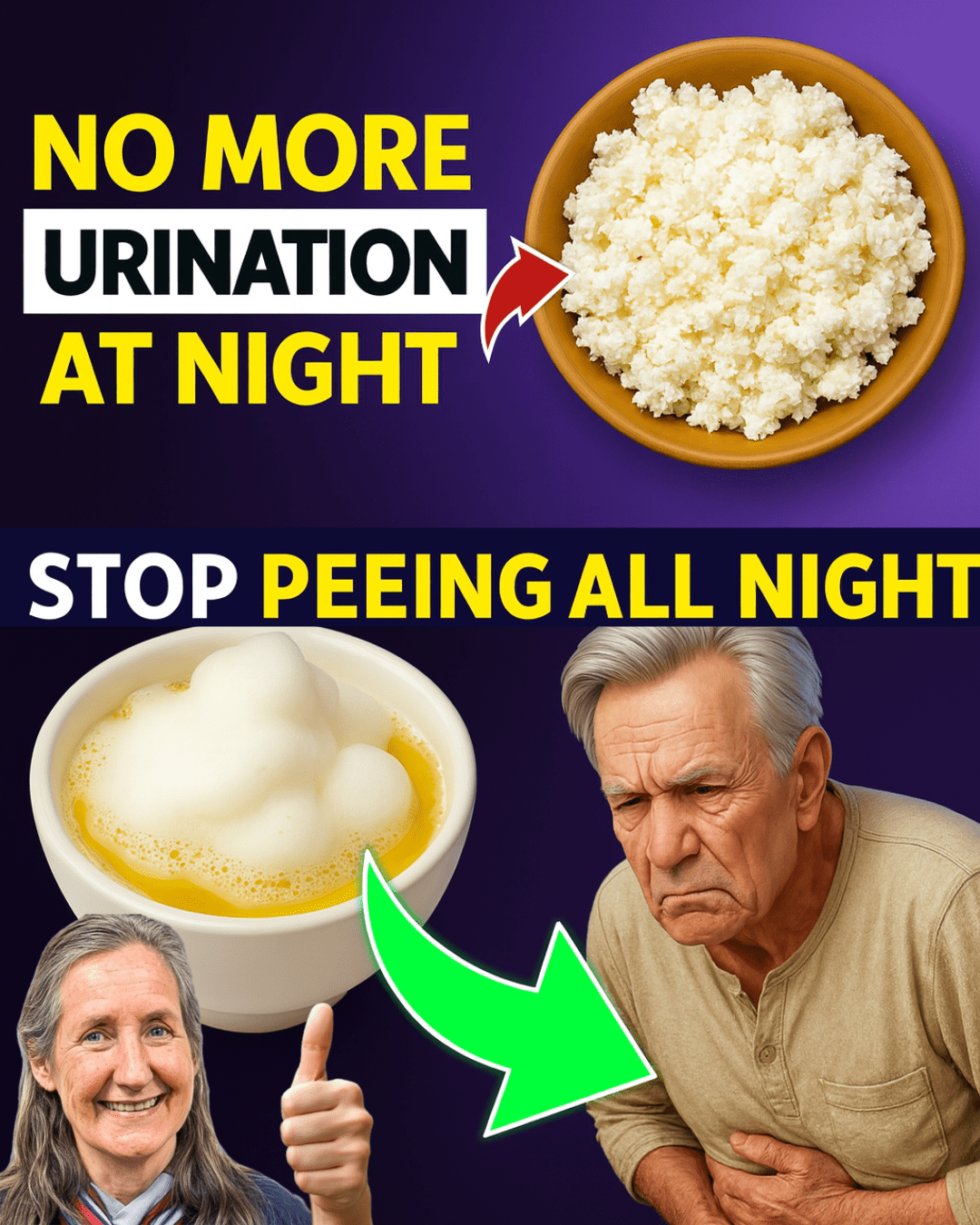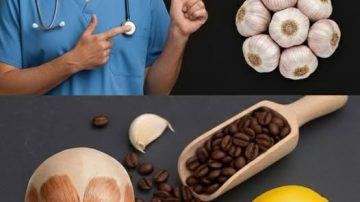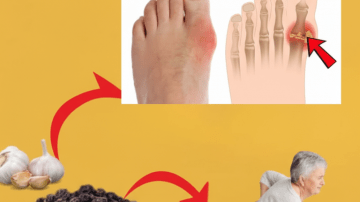🌙 The Sleep Thief: The Hidden Habit Sabotaging Your Rest
If you’re waking up two, three, or even four times every night to use the bathroom, you know the frustration. It’s not just an inconvenience; it’s a sleep disorder called Nocturia that steals deep, restorative rest, leaving you foggy, fatigued, and irritable all day long. In your search for a solution, you’ve likely seen countless claims about a “magic” bedtime protein fix.

Let’s cut through the hype and get straight to the science.
The truth is, focusing on a single “power protein” to eliminate nighttime urination is a misleading strategy. In fact, a large dose of any protein right before bed can actually wurlsen your symptoms! The real secret to reclaiming your sleep is timing, moderation, and understanding a fundamental principle of kidney function.
Ready to stop walking to the bathroom and start sleeping through the night? We’ll reveal why high-protein shakes are your enemy, and what specific bedtime moves and small, functional snacks truly quiet your bladder.
🔬 The Protein Paradox: Why Too Much Wakes You Up
The reason a large protein load works against your sleep lies in the waste products your body must eliminate.
When you digest protein, your body produces urea. To safely flush this urea from your system, your kidneys are forced to produce a high volume of urine—a process called osmotic diuresis. This is a necessary metabolic process, but the timing is critical.
At night, your body naturally releases Anti-Diuretic Hormone (ADH), which signals the kidneys to slow down urine production so you can sleep uninterrupted. When you consume a large, protein-heavy meal or shake late in the evening, the resulting surge of urea can override the effects of ADH. Your kidneys must prioritize waste removal over sleep, leading to a full bladder and an unwelcome trip to the toilet, usually right in the middle of your deepest sleep cycle.
The #1 Protein Rule for Nocturia:
The most effective protein strategy is a practice of limitation and strategic timing.
- Avoid: Large meals rich in dense protein (like red meat, large servings of fish, or heavy protein shakes) 4 hours before bedtime.
- Limit: If you must eat protein, keep the serving size very small (5-10 grams maximum).
🔑 The Strategic Bedtime Snack: Functional Fuel
Since the goal is to support sleep and bladder relaxation without taxing the kidneys, the optimal evening snack is low in fluid, low in metabolic load, and rich in nutrients that support muscle relaxation and sleep quality.
The Best Nighttime Allies:
| Nutrient Focus | Functional Snack (Low Fluid Volume) | Why It Works |
| Magnesium | 1 Small Handful of Almonds or Walnuts | Magnesium is a crucial mineral for muscle relaxation and nerve function. It can help relax the detrusor muscle around the bladder, potentially reducing urgency. |
| Melatonin & Tryptophan | Very Small Serving of Plain Greek Yogurt | Greek yogurt contains casein protein (slow-digesting) and is low-volume. Paired with tart cherry powder, you get natural melatonin to deepen sleep, which helps suppress bladder signals. |
| Anti-Inflammatory | A few small slices of Banana | Bananas are low-acidic and rich in Potassium, an electrolyte vital for fluid balance. Adequate potassium helps the body manage salt intake and reduce swelling. |
Xuất sang Trang tính
💧 The True Game Changer: Mastering Fluid & Circulation
While adjusting protein intake is helpful, the most significant improvements in Nocturia are almost always achieved by addressing the flow of fluid in your body.

1. ⛔ The Strict Fluid Curfew
- Action: Institute a strict cut-off time for all beverages (water, tea, juice, milk) 2 to 3 hours before bed. This ensures your kidneys complete their major processing cycle before you lie down.
- Avoid: Be aware of hidden evening fluids, such as soup with dinner, large sauces, and high-water-content foods like watermelon or grapes after the curfew.
2. 🧂 Sodium Scrutiny
High-sodium meals late in the day (takeout, cured meats, frozen dinners) force your body to retain fluid to dilute the salt, leading to a massive increase in urine production at night.
- Action: Severely limit all high-sodium foods and restaurant meals in the late afternoon and evening. This is one of the most powerful and often overlooked dietary fixes.
3. 👟 Reverse Daytime Fluid Pooling (Leg Elevation)
For many older adults, gravity causes fluid to pool in the lower legs and ankles during the day (peripheral edema). When you lie down at night, this fluid is released back into the bloodstream, and the kidneys flush it out, causing nocturnal polyuria.
- Action: Elevate your feet above the level of your heart for 30 to 60 minutes in the late afternoon or early evening. This simple action allows the body to process and eliminate the excess fluid before you go to sleep, rather than waking you up at 3 a.m.
- Tip: Wear compression socks during the day to help prevent the fluid from pooling in the first place.
4. ☕ Eliminate Bladder Irritants
Alcohol and caffeine are powerful diuretics and bladder irritants that stimulate the bladder muscle and interfere with the hormone (ADH) that slows urine production at night.
- Action: Institute a caffeine curfew at noon and limit alcohol consumption to a small, single serving with dinner, well before your fluid curfew.
🩺 Final Word: When to Call the Doctor
While these natural habit corrections can dramatically improve symptoms, Nocturia can be a sign of a serious underlying medical issue.
It is crucial to consult your healthcare provider if:
- You are waking up two or more times every night to urinate.
- The urge is sudden, painful, or accompanied by other symptoms (fever, redness).
- You have pre-existing conditions like diabetes, heart failure, or prostate issues (BPH).
Take control of your sleep by prioritizing fluid timing, reducing inflammation, and giving your kidneys a break in the evening. Your body—and your alarm clock—will thank you.






